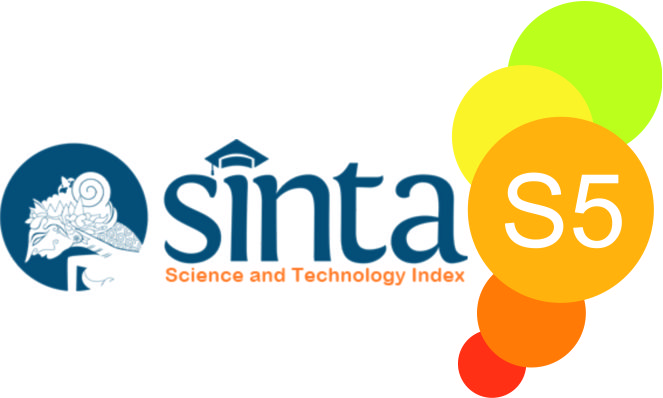PERSEPSI MAHASISWA TENTANG PROFESIONALISME DOSEN BERDASARKAN UNDANG-UNDANG GURU DAN DOSEN NO 14 TAHUN 2005 DI PROGRAM STUDI PENDIDIKAN EKONOMI FKIP UNPATTI
Abstract
The purpose of this study is to determine the perception of students of Economic Education Study Program FKIP Unpatti on lecturer professionalism based on the Law of Teachers and Lecturers No. 14 of 2005.
This research is a descriptive quantitative research by using survey method. The data collected is primary data that obtained directly by the researcher, which is the answer to the questionnaire distributed directly to the respondents. The population of this study is all students active S-1 Economic Education academic year 2016/2017 class of 2014 consisting of 112 people. The sample in this research is taken by using Random or Probability Sampling method with Stratified Random Sampling technique. The number of samples taken using Slovin formula with a significant level of α 5%, so the total sample is 88.
The results of this study indicate that the general perceptions of students on the professionalism of lecturers of Economic Education Program FKIP- Unpatti is very good. This is seen from the results of respondents' answers to the questionnaires distributed. The result of the calculation shows that the lecturer's academic qualification 84.1% students have very good perception, 13,6% have good perception, and 2,3% have enough perception. On Pedagogic competence as much as 35,2% student have very good perception, 62,5% student have good perception and 2,3% student have enough perception. On Professional competence as much as 68.2% students have very good perception, 30.7% have good perception, and 1.1% of students have enough perception. On Personality competence as much as 33.0% of students have a very good perception, 65.9% of students have good perception and 1.1% of students have enough perception. On Social competence, 56.42% of students have very good perception, and 43.18% of students have good perception.
Downloads
References
Fietwiet Hayalisyi, (2010), Teknologi Pendidikan dan Kompetensi Tenaga Kependidikan, tersedia dalam, https://fitwiethayalisyi.wordpress.com, online 15/1/2017. http://analisis-statistika.blogspot.co.id/2012/09/menentukan-jumlah-sampel- dengan-rumus.html.
Indiantoro. 1999. Metodologi Penelitian Bisnis, Akuntansi Dan Manajemen. Yogyakarta : Penerbit BPFE.
Ipong Dekawati. 201. Kompetensi Dan Motivasi Pengaruhnya Terhadap Kinerja Dosen Serta Dampaknya Pada Mutu Layanan Pendidikan. http://zeparmas.blogspot, Diakes 2012
Moskowitz, M.J. and Orgel, A.R. 1969. General Psichology : Acore Text In Human Behavior. Boston : Houghton Mifflin Company
Mubarok Ali. 2012. Paradoks Profesionalisme Dosen. http:Suara Merdeka.com. Diakes 2012
Robins P. Stephen. 2007. Manajemen, Jakarta : Erlangga
Sanjaya Wina. 2013. Penelitian Pendidikan, Jenis, Metode dan Prosedur. Jakarta: Kencana Prenada Media Group
Soehartono I, 1995, Metode Penelitian Sosial, Suatu Teknik Penelitian Bidang Kesejahteraan Sosial dan Ilmu Sosial Lainnya, Bandung, Penerbit PT Remaja Rosdakarya.
Studi Pendidikan Akuntansi FISE UNY Terhadap Profesionalitas Guru Berdasarkan Undang- Dunia Dosen, (2013) tersedia dalam Kualifikasi dan Kompetensi Dosen Menurut Undang-Undang, tersedia dalam https://www.duniadosen.com, online 15/21/2016.
Sugiono. 2014. Metode Penelitian. Bandung : AlfabetaSemiawan, Conny R. 2008. Belajar Dan Pembelajaran Pra Sekolah Dan Sekolah Dasar, Jakarta PT. Indeks
Undang-Undang Guru dan Dosen No 14 tahun 2005.









 This work is licensed under
This work is licensed under 